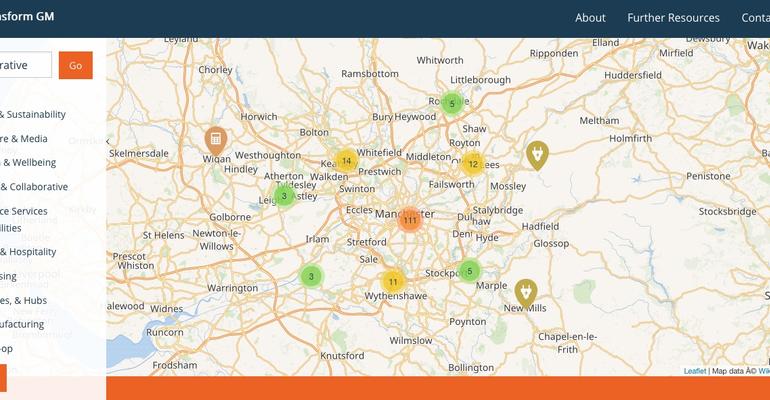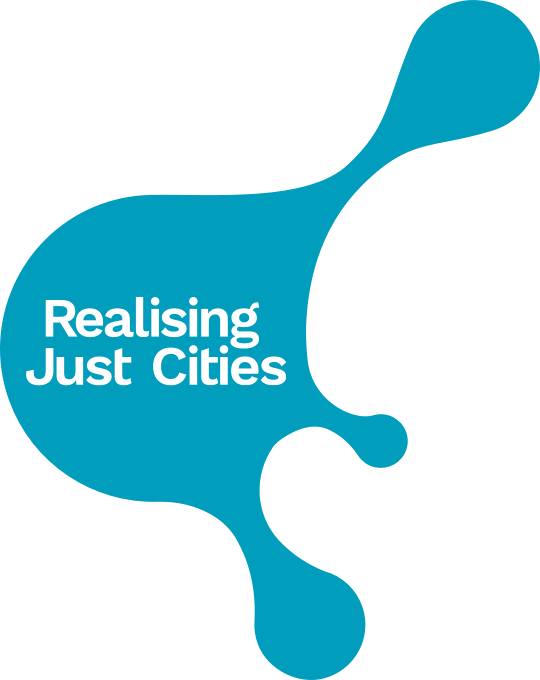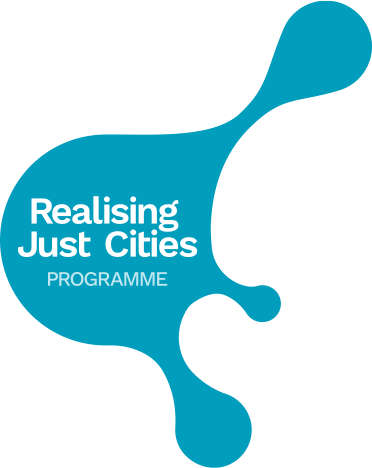TransformGM: Re-thinking prosperity and economics in Greater Manchester

Coinciding with the launch of the Greater Manchester Independent Prosperity Review, the ESRC Jam & Justice project is releasing its report on GM’s Social & Solidarity Economy. The report argues that we need a ‘new way of seeing’ the economy, and calls for the establishment of a Chamber for the Social & Solidarity Economy and the co-production of an impetus plan for the Social & Solidarity Economy.
Today’s launch of the Greater Manchester Independent Prosperity Review promises to provide a ‘fresh understanding of what needs to be done to improve productivity and drive prosperity across the city region’. As Mayor Andy Burnham has summarised:
“Whilst there is much to be optimistic about in this report, there are some stark messages that should come as no surprise: regional inequality still persists, and we’re still facing barriers beyond our control when it comes to growth”
It's clear that urgent and radical change is needed; with automation driving job loss, real wages continuing to stagnate, the need for decarbonization within 12 years, increasing inequality in both wealth and income, and household debt worse than at any time on record, we need a dramatically different approach to understanding our economy. With inclusive growth increasingly discredited, we need new thinking about how to develop an inclusive economy, one that puts an emphasis on community wealth-building and that includes ‘community action and innovation, finding alternative ways in which citizens and the state organise themselves to meet social needs and issues’. The idea of the Social & Solidarity Economy adds to this debate, helping us to think differently about the nature of economic activity.
Drawing on a 6-month pilot study conducted through 2018, and partnered with our online TransformGM map, this report begins to identify Greater Manchester’s Social and Solidarity Economy, arguing that it forms a hidden economy that is poorly understood using traditional economic analyses. The social significance of these initiatives comes neither from their GVA contribution nor their ability to improve the ‘global competitiveness’ of Greater Manchester. To the contrary, their value is found in their ability to contribute to a movement that can transform the city-region, implementing sustainable and equitable practices whilst building the necessary socio-economic power to leverage wider change.
"While the SSE includes activities traditionally grouped under the third sector or social economy, such as social entrepreneurship, it distinguishes itself by making explicit a set of values that include solidarity and mutual support towards a new economic paradigm"
The report calls for a deepening of understanding of GM’s SSE sector, including learning and knowledge exchange with other cities – such as Barcelona – that have a developed and co-produced understanding of their Social & Solidarity Economy. Recalling Andy Burnham’s statement that “we don’t do to people, we do with people” in Greater Manchester, the report suggests the establishment of a Chamber for the Social & Solidarity Economy. Populated by Transformative Economic Actors (TEAs) and supported by supplementary organisations and research where necessary, the Chamber should play a key role in the co-production of an impetus plan for the SSE sector in Greater Manchester.
Download the full report - Transform GM: A Pilot Study of the Social & Solidarity Economy - here
Here are seven examples of Greater Manchester based initiatives we believe could be central the development of Greater Manchester Chamber for the Social & Solidarity Economy:
Cordata Housing Co-op
About: Large housing co-operative in Withington, South Manchester. The house is owned by a secondary co-operative and run by members of the co-operative house, who have complete control over who lives there, how the space is used, and what it looks like. This model also allows for a complete low energy refurbishment, so they have fitted solar panels, a complete insulation envelope, rainwater collection, and other energy reducing features. They plan to try and set-up more houses on the same model in the future.
What makes this part of the SSE? This project is focused on developing collective, ecologically sustainable housing solutions. Their model generates income through rent and this is circulated back into setting up new houses.
Mums Mart Savers
About: Mums Mart is a cooperatively run association that was started up by local mums in Benchill after a member of their community broke down in the school playground. They run monthly markets, a community savings initiatives and a local food cooperative (similar to the community grocer model). A percentage of any income is channelled into a collective community benefit fund and members vote on how this money should be used once a year. Mums Mart follow an approach called savings-based organising which is new in the UK. They adapted this for the UK context after a series of exchanges with the international social movement Shack/Slum Dwellers International.
What makes this part of the SSE? Mobilising their community through a savings-based approach, Mums Mart have created a cooperative community-led structure through which local residents come together to identify priorities, take action on them through collective decision-making and collective finance, and advocate for larger scale investments of time and resources from other agencies when needed. Mums Mart have supported four other communities to begin savings schemes and are working on further expansion across GM.
Levenshulme Market
About: Levenshulme Market launched in 2013 and is a Community Interest Company. The market is led by a team of volunteer directors, and employs several members of staff. The market takes place weekly. The market is involved in local economic planning projects and directs some of its profits back into local projects.
What makes this part of the SSE? The market is a sustainable community-run project which reinvests profits into the local area, stimulating more positive projects and developments.
Unicorn
About: Unicorn was formed in 1996 and is based in Chorlton, South Manchester. It is run as a workers’ co-operative, owned and democratically controlled by staff you see in the shop. As well as selling fresh food with an emphasis on organic, fair-trade and local they are involved in the wider community and co-operative movement. Named ‘Best Food Retailer’ at the 2017 BBC Food & Farming Awards.
What makes this part of the SSE? A workers co-operative that reinvests lots of their profit in other social and environmental projects, playing an important part in the ecological and sustainable food networks across Greater Manchester.
Old Abbey Taphouse
About: “Cultural hub in a pub". Both a pub and a social and community space on the edge of Hulme, the Old Abbey Taphouse bridges the university and Hulme community. Fundraising parties, educational and cultural events take place alongside the normal functioning of a pub. The upstairs contains a rehearsal space and recording studio. It is run as a social enterprise and was awarded the Making a Difference Award: Highly Commended for Outstanding Community Engagement by the University of Manchester in 2018 and shortlisted in the last five for Outstanding Innovation in the Manchester City Council Culture Awards.
What makes this part of the SSE? A social enterprise with a working business model serving as a hub for wider community work, the Taphouse also provides a springboard for other projects to get started.
Lucie’s Pantry
About: A “social supermarket” located at the Emmaus Salford Community Homestore on Fitzwarren Street in Pendleton, Lucie’s Pantry aims to provide a sustainable and affordable source of food and household essentials to members of the Pendleton community struggling to make ends meet through debt, illness or low income. People who want to use the social supermarket will become a member of Lucie’s Pantry. Members pay £2.50 per week and can choose items to the value of approximately £15 each week. By becoming a member of Lucie’s Pantry, individuals are helping to support others in their community. The more members who use the social supermarket, the more quality items can be sourced allowing even more people to benefit.
What makes this part of the SSE? This is a model which goes well beyond the charity model of most foodbanks. It aims to be self-sustaining and expand.
Partisan
About: A cooperatively run non-profit arts and culture space, Partisan has a large membership who are very engaged with the project. The cooperative provides meeting space for community groups as well as office space for organisations and progressive projects.
What makes this part of the SSE? This co-operatively run not-for-profit is an incubator for other non-profit projects. Some of the profit made subsidises other projects and community groups.
Leigh Hackspace
About: Leigh Hackspace CIC is a shared Makerspace. Members pay a membership fee and for this have access to the facilities, tools and materials. These include: a fully equipped photographic darkroom, 3D printers, a ceramics kiln, a woodwork shop including professional tools, sewing machines and overlockers, laptops, retro PCs, books, games and a kitchen. The Hackspace also provides some training (most learning is done peer-to-peer) and a regular (free) Coder Dojo/Code Club. In addition, they run social events such as quizzes.
What makes this part of the SSE? The hackspace has a social mission and has tied this to a sustainable business model. It is connected to other hackspaces and maker spaces in Greater Manchester and beyond.




